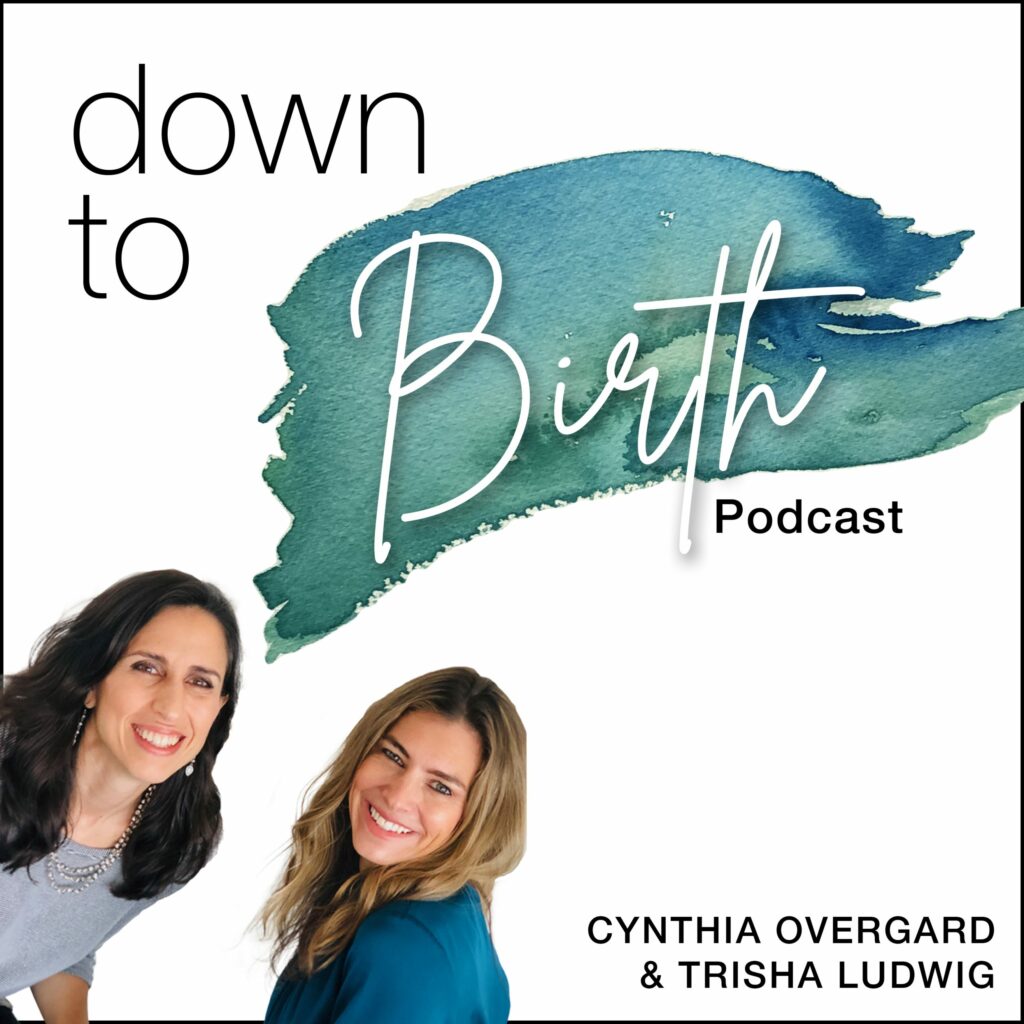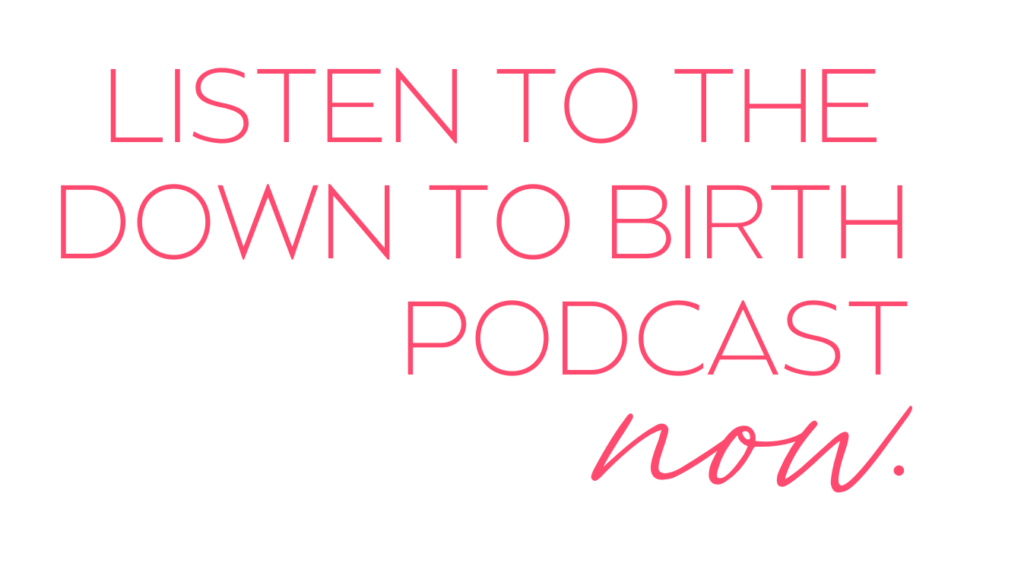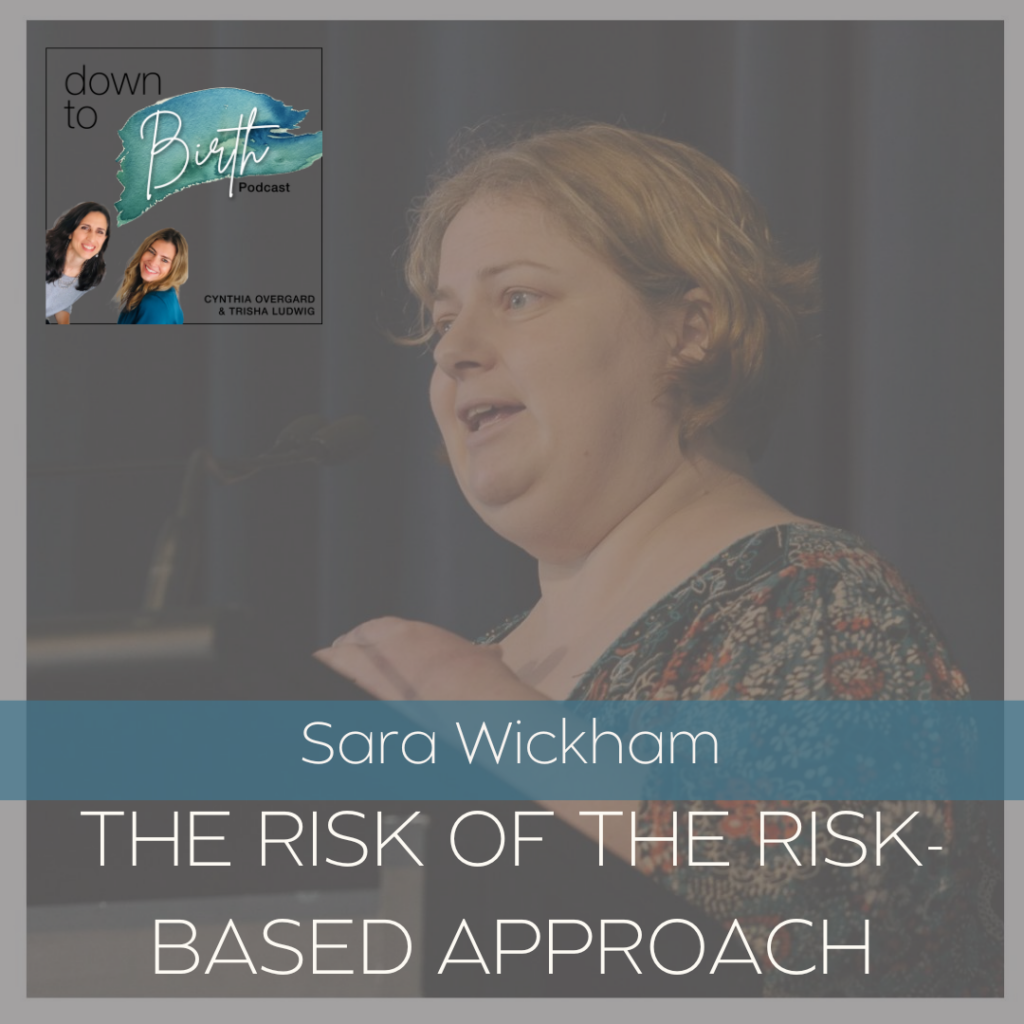
Join Cynthia Overgard and Trisha Ludwig once per week for evidence-based straight talk on having a safe and informed birth, which starts with determining if you’ve hired the right provider. If we had to boil it down to a single premise, it’s this: A healthy mom and baby isn’t all that matters. We have more than 30 years’ experience between us in midwifery, informed rights advocacy, publishing, childbirth education, postpartum support and breastfeeding, and we’ve personally served thousands of women and couples. Listen to the birth stories of our clients, listeners and celebrities, catch our expert-interviews, and submit your questions for our monthly Q&A episodes by calling us at 802-GET-DOWN. We’re on Instagram at @downtobirthshow and also at Patreon.com/downtobirthshow, where we offer live ongoing events multiple times per month, so be sure to join our worldwide community. We are a Top 1% podcast globally with guests and listeners from around the world. Become informed, empowered, and have a great time in the process. Join us and reach out any time – we love to hear from you. And remember: Hear everyone, listen to yourself.


Yvonne shares how her fear was never completely eradicated before going into her second labor, and said her supportive team and HypnoBirthing – which she had once assumed was best-suited for those with an inclination toward yoga and meditation – were what kept her erring on the side of grounded and calm through pregnancy and birth rather than fearful.

Krisha returns to the show to discuss her effective techniques for “training” – in the athletic sense – her clients for a natural birth. As a former collegiate athlete, Krisha has developed a methodology for training your mind and body to have your easiest, fastest, and safest birth. Today, she explains her four key steps to get there and how you can utilize these practices at home to get your mind and body in the best birth shape.

This episode is another special roundtable, in which we sat with some postpartum women in Cynthia’s kitchen to talk about their experiences with anxiety, depression, panic attacks, arguments with their spouses, lack of professional and personal support and unmet expectations. Amy is a young mother of three; Devon is a forty-year old mother of one. Through tears and some laughter, you’ll discover that much of what a struggling mom experiences in her early months and years is universal, and even with different lifestyles and networks of support, it’s the emotional journey of postpartum life that everyone can relate to.

GBS affects approximately one-third of all pregnant women, and involves widespread use of intravenous antibiotics in labor even though the screening tests are known to be highly imperfect, and some women are at significantly greater risk of GBS colonization than others. Further, there are specific risk factors making some babies far more likely to contract GBS than others. This “universal” approach to GBS management is the very start of our deep and detailed discussion on GBS. Cynthia and Trisha have reviewed all the available data from the past three decades to provide you with informed decision-making on GBS.

Dr. Rachel Reed, PhD, author, midwife, researcher and expert in physiologic birth joins us for the second time on the Down to Birth Show to discuss the differences between physiologic birth and induced labor. She shares with us the different ways in which Pitocin/Syntocin impacts the course of labor, including significant risk to mother and baby, versus our own natural oxytocin. You’ll learn the unique risks of Pitocin for first-time moms, and the entirely different set of risks Pitocin presents to women who’ve already given birth before. She explains the general risks of induced labor, and discusses circumstances when induction is absolutely necessary. In this episode, we critique the ARRIVE trial and its flawed results, which have led to many women choosing elective induction at 39 weeks believing it to be a safer option for mother and baby.

Dr. Sara Wickham, PhD, MA, PGCert, BA, is a best-selling author, speaker, and researcher who works independently. She has more than twenty years’ experience as a midwife; she’s lectured in more than 30 countries; and, she is a researcher and author of seventeen books, and has edited three midwifery journals. She is considered a leading expert on the research and evidence around many of the most controversial topics and most difficult decisions in childbirth: Induction, newborn interventions, GBS infection, RhoGAM or Anti-D prophylaxis for Rh-negative mothers, and plus-size pregnancy.
Today, she joins us to talk about risk and risk reduction. In focusing on risk factors or lack thereof in any individual woman, we are generalizing and categorizing her care not based on her individual and holistic assessment, but rather on a risk category that may not actually be the best fit for her and her baby. Sara explains five ways in which we should consider risk and risk assessment in childbirth. For example, are we considering the impact of a risk-centered approach on the long-term health of the mother and baby or how it may undermine a woman’s confidence? Ultimately, she questions the conviction that, in childbirth, more action, more tests, and more intervention lead to safer outcomes. And as a bonus, she answers the top-three questions from our community.

Active management of the third stage of labor refers to interventions that are taken to speed up the delivery of the placenta and reduce the risk of postpartum hemorrhage. This typically involves the administration of an oxytocic drug like Pitocin or Syntocinon to increase the contraction of the uterus and the use of techniques like fundal pressure and controlled cord traction to guide the placenta out of the uterus. Expectant management, on the other hand, is a more hands-off approach in which the placenta is left to detach and be delivered naturally, without the use of drugs, manual manipulations or interventions. This approach is usually used when there are no risk factors for postpartum hemorrhage and the mother and baby are both in good condition.
In this episode, we have Barbara Harper on the podcast with us. Barbara is a midwife, author, and the founder of WaterBirth International, which she founded exactly 40 years ago. She is a world-expert in birthing and to this day travels the globe educating obstetricians, nurses and midwives on physiologic birth.

It’s time for the August Q&A episode with Cynthia & Trisha! We kick off today’s episode with the crazy and unsupportive comments most often heard by our listeners. Grab a cup of coffee or tea, and get ready for some laughs. Next, we get into our questions, including:
Is routine Pitocin postpartum necessary?
What can you tell me about insufficient glandular tissue and breastfeeding?
What to do about family members who use sweets as a way to get children’s attention?
Is aggressive fundal massage really necessary?
Is too much foremilk in breastfeeding causing problems for my baby?
and more.
And in the extended version of today’s episode found on Apple subscriptions and Patreon we discuss: Experiencing nausea in labor and what can be done about it; manual dilation of the cervix and whether it’s effective; how a nuchal hand at birth impacts tearing and whether a cesarean section necessary; and, what is normal weight gain in pregnancy, and what if I have already gained the recommended amount too soon?
- Expand your education and support in our Patreon community -
Hello Down to Birth fans!
We assume you’re here because you love the podcast & want to up level your prenatal and postpartum experience with more education, support and a closer connection to us. We are Cynthia Overgard and Trisha Ludwig of the Down To Birth Show, and you can think of us as your very own go-to prenatal and postpartum consultants. We go deep beyond the scope of the podcast and bring you the best of what we have to share and teach in this Patreon community. By joining us here, you can attend live classes with us through the month, ask questions and comment on our content so we – and others in the community – can respond to you, and build a community with other like-minded moms.
Plus, you’ll get access to all our extended episodes, downloadables, and exclusive content. And for those who love a great book club, you can enjoy a stream of video-podcast episodes from us all throughout the month while we read a book with you, and include you in our very own WhatsApp chat for our readers. When you join any tier, you automatically receive the full benefits of all lower tiers. So what are you waiting for?
Join our community and connect with us!
